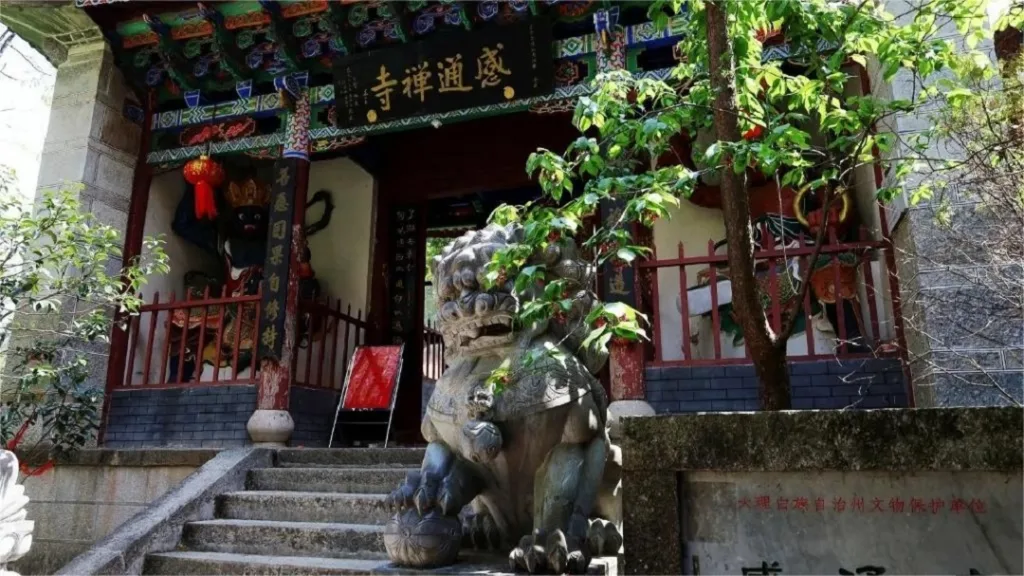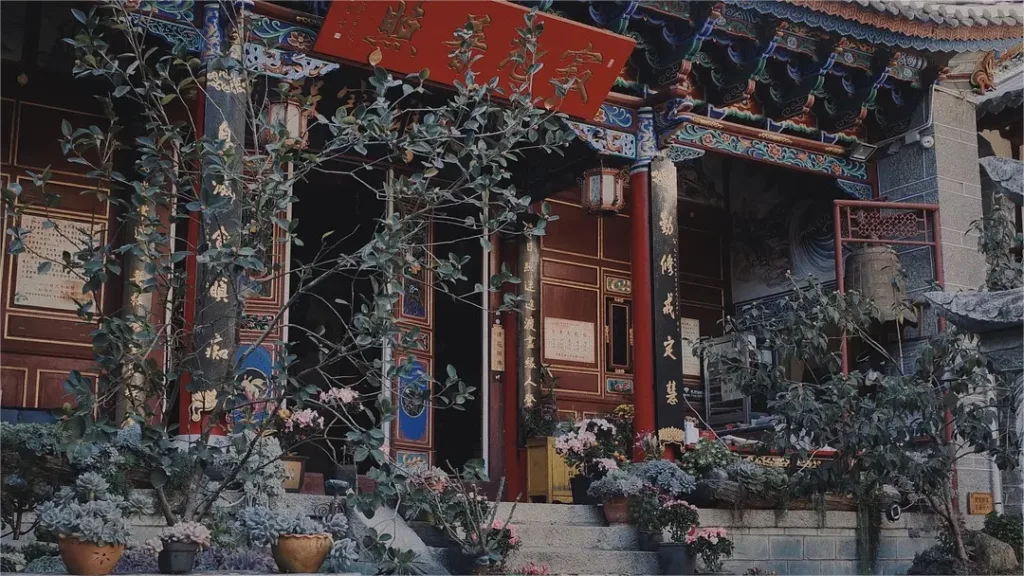Gantong Temple, Dali – Ticket, Opening Hours, Location, and Highlights


Gantong Temple (感通寺), also known as Dangshan Temple (荡山寺), is nestled at the southern foot of the Shengying Peak of Diancang Mountain in Dali, with the majestic Cangshan Mountain at its back and the vast expanse of Erhai Lake stretching before it. Gantong Temple has a long history, having endured the vicissitudes of time, experiencing several periods of prosperity and decline. At its peak, it boasted a scale of up to thirty-six monasteries. Legend has it that the main hall was called the “Dayun Hall,” with remnants of its site still present southwest of the current Gantong Temple. Other significant structures, such as the “Banshan” (which means “mountain” and “temple” in the Bai ethnic language), were mostly destroyed during the wars of the Xianfeng period of the Qing Dynasty. The existing temple buildings were gradually rebuilt after the Guangxu period of the Qing Dynasty, with restoration efforts beginning in 1981.
Gantong Temple is renowned as the “First Temple of Cangshan Mountain,” not only for its picturesque natural scenery but also for its legacy of famous figures, events, and flowers, as well as numerous captivating stories and legends. One such tale is the timeless anecdote of “Scholars and Monks Sharing a Tower,” which is still evidenced by the remains of the “Rhyme-Writing Tower” and the stupa housing the relics of the monk Dandang. The “scholar” in this story refers to the renowned Ming Dynasty scholar Yang Sheng’an (1488–1559). In the third year of the Jiajing reign (1525), due to his involvement in the “Great Rites Controversy” that offended Emperor Jiajing, he was permanently exiled to Yunnan. In the ninth year of Jiajing’s reign, Yang Shengan, accompanied by Li Yuanyang, traveled to Diancang Mountain, where they stayed at the Banshan Tower of Gantong Temple for over twenty days. During his stay, Yang Shengan annotated the “Six Scripts” and wrote a commentary on the Thousand-Character Classic. Li Yuanyang named the tower “Rhyme-Writing Tower,” a name that still faintly lingers in its current remnants.
The “monk” referred to in the story is Dandang, an outstanding poet, painter, and calligrapher from Yunnan who lived more than a hundred years after Yang Sheng’an. Dandang, originally named Tang Tai (1593–1673), failed the imperial examination during the Tianqi period of the Ming Dynasty. Following this disappointment, he embarked on a journey to explore famous mountains and rivers before returning to Yunnan to care for his elderly mother. After his mother’s passing, he shaved his head and became a monk on Jizushan Mountain, devoting himself to both spiritual cultivation and the creation of poetry, calligraphy, and painting. Dandang’s artistic style was unique, characterized by fluid brushwork in his calligraphy and profound meanings embedded in his paintings. His poetry often intertwined with his artwork, and his artwork often inspired his poetry. He gained significant renown, earning epithets such as the “Crane in the Clouds of Yunnan” and the “Distinguished Scholar of Southern China.” In his later years, he resided at Gantong Temple, where he admired the moral integrity of Yang Shengan and rebuilt the “Rhyme-Writing Tower” as his own dwelling place.
Basic Information
| Estimated Length of Tour | 0.5 – 1 hour |
| Ticket Price | Free |
| Opening Hours | 8.30 – 17.00 |
| Telephone Number | 0086-0872-2674147 |
Location and Transportation
Gantong Temple is located at the southern foot of the Shengying Peak of Diancang Mountain, situated between the ancient city of Dali and Xiaguan. It is approximately 5 kilometers from the ancient city of Dali and about 11 kilometers from Xiaguan. To reach Gantong Temple, you can take a public bus, such as Bus No. 4, which runs between Xiaguan and the ancient city. Alight at the intersection of Gantong Temple Road (感通寺路口站), where you’ll see a signboard indicating “Gantong Temple.” From there, you can take a horse-drawn carriage to reach the temple. Alternatively, you can take a cable car from the foot of Cangshan Mountain to Gantong Temple.
Other Attractions on Cangshan Mountain

Shimen Pass (Stone Gate Pass)

Xima Pool (Horse-Washing Pool)

Wuwei Temple

Jizhao Nunnery
Dali attractions, Yunnan historical sites